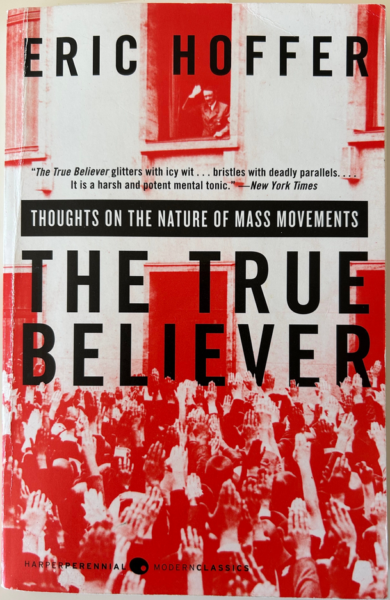Rob Henderson reviews the old classic The True Believer by Eric Hoffer:
Eric Hoffer made the case that if you peel back the layers of any mass movement, you will find that frustration is their driving force.
Frustration, though, doesn’t arise solely from bleak material conditions. The dockyard philosopher argued that “Our frustration is greater when we have much and want more than when we have nothing and want some. We are less dissatisfied when we lack many things than when we seem to lack but one thing.”
He points out in the years leading up to both the French and Russian Revolutions, life had in fact been gradually improving for the masses. He concludes, “It is not actual suffering but the taste of better things which excites people to revolt” and that “The intensity of discontent seems to be in inverse proportion to the distance from the object fervently desired.”
Personally, I saw this when I first arrived at Yale. I recall being stunned at how status anxiety pervaded elite college campuses. Internally, I thought, “You’ve already made it, what are you so stressed out about?” Hoffer, though, would say these students believed they had almost made it. That is why they were so aggravated. The closer they got to realizing their ambitions, the more frustrated they became about not already achieving them.
Hoffer’s conceptions of frustration highlight how if your conditions improve, but not as much or as quickly as you’d like, you will be vulnerable to recruitment by mass movements that promise to make your dreams come true.
In Democracy in America, Alexis de Tocqueville wrote, “When inequality is the general law of society, the most blatant inequalities escape notice. When everything is virtually on a level, the slightest variations cause distress. That is why the desire for equality becomes more insatiable as equality extends to all.” For Hoffer, this insatiability cultivates frustration — a nebulous, simmering emotional state that can be harnessed by any ideology.
He describes what has now become known as the “Tocqueville effect”: A revolution is most likely to occur after an improvement in social conditions. As circumstances improve, people raise their expectations. Societal reforms raise reference points to a level that is usually not matched, eliciting rage and frustration.




